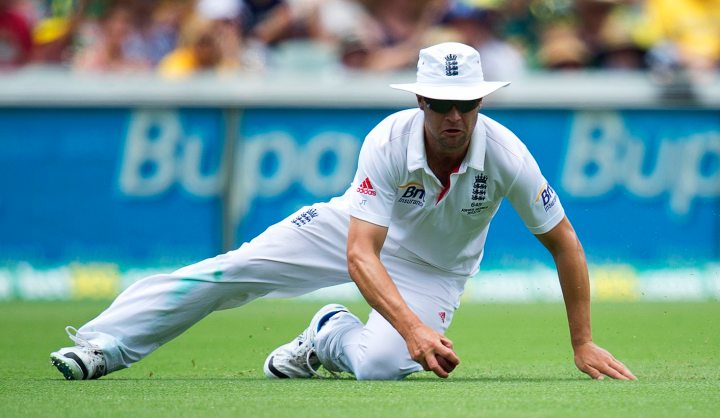Sport
A small step for FICA, a giant step for cricket: Mental health labelled a ‘critical risk’ for players

FICA’s inaugural Player Health, Safety and Security Report was published on Wednesday and it identified mental health issues as a “critical risk”. Cricketers being prone to depression has been a well-known fact for a long time, but it’s about time somebody recognised that more support is needed to overcome the stigma. By ANTOINETTE MULLER.
The Federation for International Cricketers’ Associations (FICA), published its inaugural Player Health, Safety and Security Report on Wednesday. The report assessed a number of risks facing players. With input from players, players associations and key team officials, the report assessed and identified the main risks facing players. It suggested reforms to combat these risks in order to increase the quality and consistency of the health and safety as well as security of players.
At the top of the “serious risks” were lightning strikes, terrorism, serious injury through being hit by the ball and mental illness.
Each risk was measured by being given a rating from low to critical, depending on how likely it was to happen, multiplied by the potential damage to health, on a scale from fatal down to short-term injury.
FICA will be seeking a response from the international Cricket Council (ICC). Tony Irish, executive chairman of FICA, said: “We believe it is time for the game to address all of the potential risks to players and participants in their professional lives in a comprehensive and considered way.” Additional research and investment to set “non-negotiable minimum standards in all areas” is also being touted.
Notably, mental illness was given a critical risk rating, with the recent cases of Marcus Trescothick, Michael Yardy and Jonathan Trott all being cited. But they are not the only ones who suffer. We already know that cricketers are prone to depression and the macho culture in sport is often one of the reasons why players are not speaking up about their troubles. Although it is changing slowly, FICA notes that there is still a “lack of understanding of the subject by the wider cricket community, including officials and media and a “lack of consider research into understanding the cricket-related causes.” It recommends a number of solutions, including the funding and delivery of educational programmes.
This recommendation underscores just how far the sport still needs to go in addressing the issue of mental health in cricket, and the understanding of it. The fact that very limited programmes currently exist to educate and assist players from major cricketing nations around mental health is concerning. That FICA has included the risk in their report, and labelled it as critical, highlights the need for action, not just by individual board and players’ associations, but by the ICC. It also means that attitudes towards mental health are heading in the right direction. As little as five years ago, professional sportsmen talking about their mental health and admitting to any problems was still met with raised eyebrows. These days, it’s much more common, and the community is far more supportive, but more still needs to be done to completely eliminate the macho culture that thinks depression is something somebody can just “shake off” – not to mention the stigma attached to other conditions. It is refreshing to see the global players’ body take the issue so seriously and it is now up to the individual boards to act. It has been clear for some time that something proactive needs to be done in order to improve the way in which mental health issues are dealt with, and now that recommendations have been made, perhaps things can start moving forward.
The entire report makes sound recommendations in a number of areas, most of which many would perceive to be logical. On-field injury is categorised as high-risk, with the deaths of Phil Hughes and Ankit Keshri cited as two notable cases. Mark Boucher and Craig Kieswetter’s career-ending injuries are also noted. FICA recommends research into better helmet designs and a focus on safety that extends beyond batting, meaning the safety of close-in fielders as well as umpires should also be considered.
Skin cancer and other heat-related conditions have been labelled high-risk, with Australia captain Michael Clarke, former England coach Andy Flower and former England spinner John Emburey all having been treated for skin cancer. The report recommends “regular skin checks” for players and “qualification standards of key members of team support staff”.
Another key point is safety during thunderstorms, the latter having been labelled a high risk area. The report notes that England and Australia are the only two countries which has protocol for lighting. It recommends implementing global safety protocol which also allows for adequate protection of ground staff. It has frequently happened that players stay on the field when there are lightning strikes around the ground, and protocol for this is crucial.
The report also looked at the risk surrounding tour and event security, public status related incidents, crowd disturbance, travel accidents, long-term health issues facing cricketers and a number of other factors. The players’ body will now push to implement these recommendations and from July 2015, FICA will maintain an international health, safety and security incident database in order to help improve player safety. DM
Photo: A file picture dated 23 November 2013 shows England player Jonathan Trott fielding a ball on day 3 of the first Ashes Test between Australia and England at the Gabba in Brisbane, Australia. EPA/DAVE HUNT



















 Become an Insider
Become an Insider